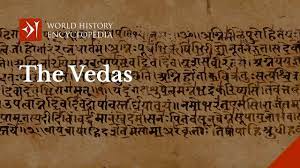The Vedas are the oldest scriptures of Hinduism, and they have had a profound influence on other ancient Indian scriptures and philosophical systems.
Some of the most important ways in which the Vedas have influenced other ancient Indian scriptures include:

- The concept of Brahman: The Vedas introduce the concept of Brahman, which is the ultimate reality or ground of all being. This concept has been influential in other Indian scriptures, such as the Upanishads and the Bhagavad Gita.
- The concept of Atman: The Vedas also introduce the concept of Atman, which is the individual self. This concept has been influential in other Indian scriptures, such as the Upanishads and the Bhagavad Gita.
- The concept of moksha: The Vedas teach that the goal of life is to achieve moksha, which is liberation from the cycle of birth and death. This concept has been influential in other Indian scriptures, such as the Upanishads and the Bhagavad Gita.
- The concept of dharma: The Vedas teach that everyone has a dharma, or duty, in life. This concept has been influential in other Indian scriptures, such as the Mahabharata and the Ramayana.
Some of the most important ways in which the Vedas have influenced other ancient Indian philosophical systems include:
- Samkhya: The Samkhya philosophy is based on the dualism of purusha (consciousness) and prakriti (matter). This dualism is first introduced in the Vedas.
- Yoga: The Yoga philosophy is based on the practice of yoga, which is a system of physical and mental exercises that are designed to lead to union with the divine. The practice of yoga is first mentioned in the Vedas.
- Mimamsa: The Mimamsa philosophy is concerned with the interpretation of the Vedas. It teaches that the Vedas are infallible and that they should be interpreted literally.
- Vedanta: The Vedanta philosophy is the culmination of the philosophical ideas that are found in the Vedas. It teaches that the ultimate reality is Brahman, and that the individual self (Atman) is identical to Brahman.
The Vedas have had a profound influence on other ancient Indian scriptures and philosophical systems. Their ideas have been adapted and developed by later thinkers, and they continue to be influential today.